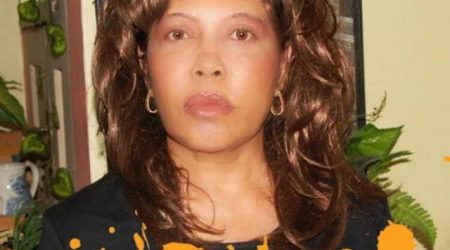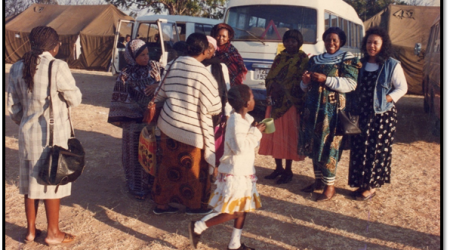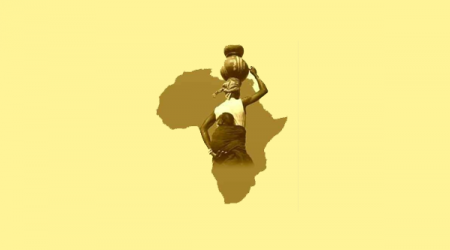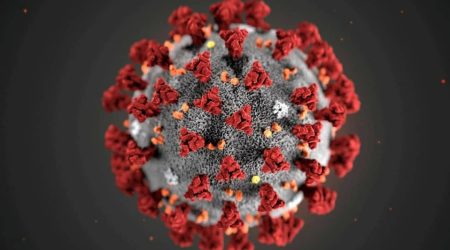Tanzania Urgently Needs a Sexual and Reproductive Health Policy
SEXUAL and Reproductive Health encompasses health and well-being in matters related to sexual health; sexual relations; pregnancies and birthing Rights.
It deals with the most intimate and private aspects of people’s lives, which can be difficult to write about and discuss publicly. As a result, the public misunderstands many sexual and reproductive health matters. In addition, cultural sensitivities and taboos surrounding sexuality often prevent people from seeking information and care and preclude the government from addressing the issues.
Yet, Sexual and Reproductive Health profoundly affects the social and economic development of our society. When women die in childbirth, children are orphaned. When girls must take over care of their siblings, they drop out of school. Without an education, girls often marry and begin having children early, which can jeopardize their health and limit their opportunities to reach their full potential as human beings; as well as to add productively to their community and their country’s development.
The media could play a critical role in bringing sexual; reproductive; and maternal health matters to the attention of people who can influence public health policies. These people include government officials and staff; leaders of nongovernmental organizations, including women’s groups and faith based groups; academics and health experts; and health advocates and other opinion leaders. (Source: Journalists’ Guide to SRHR Monitoring).
Many of these influential people read news reports and listen to broadcasts daily, and their opinions are shaped by them. Occasionally, one news report can spur a decision maker to act. More often, however, a continuous flow of information is needed to educate diverse audiences about issues and inform public policy debates.
Key Areas
The majority of organizations involved in SRHR work in Tanzania are using a health approach to programming, while ignoring the socio-economic aspect of SRHR.
Due to the traditional stance of refusing to have conversations on SRHR in public spaces, most organizations have yet to adopt a clear Rights framework to their programming.
While a number of organizations recognize that a more holistic approach is needed to advance SRHR, most of the interventions being used are still very conventional and do not embrace alternative approaches which should also include marginalized groups like women who are physically challenged; women with fertility challenges; girl children who are married off at puberty; and cancer survivors. The PLHIV women at least have their Maternal Rights recognized with the introduction of the Mother to Child Transmission Prevention Program (MCTP).
It is also important to note that the majority of organizations engaging in this agenda, only began to do so in the last 10 years, and are operating at a relatively small scale. They are still in the process of developing their own theories of change and home-grown strategies to address SRHR issues in Tanzania.
Owing to the fact that many of the SRHR initiatives of the past have failed because the focus of the Initiatives were mainly on Family Planning and not embracive of the other key areas of SRHR, most initiatives are now focusing on reducing young peoples’ vulnerability to HIV, AIDS and STIs; while ignoring the importance of access to proper medical and reproductive health knowledge and information by all youths and adults Tanzanians.
Most Pressing Needs in Sexual and Reproductive Health Rights
According to the stakeholders interviewed in a Study conducted by this writer for a Policy Brief on Sexual and Reproductive Health Rights for the TGNP, the most pressing needs in SRHR in Tanzania include the following:
- Access to free, comprehensive, confidential, friendly, and appropriate health services.
- Access to free male condoms and female condoms.
- Opportunities for economic empowerment and financial assistance through micro-credit facilities and small business management training which would create exits for women and girls who engage in the sex business out of desperation, because they do not have access to other sources of income generation.
- Increased access to sexual and reproductive health information and services.
- Individual empowerment, life skills training and leadership building opportunities.
- Increased security and protection from violence; exploitation; and sexual abuse by employers both in the private and the government sector.
- Increased access to justice and equal legal protection.
- Protection of women and girls from sexual exploitation through trafficking.
- Human rights and advocacy skills development for women in the informal sector so they would know their Rights and would have the skills to say ‘No’ to coercive sex which happens all the time with women in the informal sector not having the skills and social muscle to stand up against sexual harassment.
- Increased networking and movement building opportunities for women with physical challenges who also have the Right to information and skills on Sexual and Reproductive Health Rights.
- More Gender Desks in police stations with law enforcement personnel who have undergone training in Gender Justice and who would also have the skills in taking statements from women who report on gender based violence.
- There is need to have more sign language experts who would serve as interpreters in cases of sexual or intimate partner violence, for women with hearing and speaking challenges. Most often, women with hearing and speaking challenges do not report gender based violence cases because they do not have sign language experts to support them when they report cases to the police; or when they have to give testimony in during court proceedings.
- Stigma and discrimination against women with fertility challenges should be addressed and public education conducted, as well as the formation of support groups to women with fertility challenges. Society, women especially, can be extremely cruel and inconsiderate towards women who are going through fertility challenges. This has got to be eliminated and medical treatment made available at low cost for couples undergoing fertility challenges.
Fertility Challenge is either a subject for jokes and ridicule; or totally ignored in Tanzania, whereas countries like Uganda have started low cost IVF programs to support low income couples who need assisted reproduction.
In Tanzania, we still have not accepted the fact that fertility challenge can be faced by both men and women and it is always the woman who is ‘blamed’. Fact is, Fertility treatment is part of Reproductive Rights.

Interventions Being Used Currently
The majority of stakeholders are therefore adopting the following key interventions to address SRHR:
- Promoting peer education that focuses on STI and HIV prevention; care; and treatment.
- Promoting use of male and female condoms, but mostly male condoms, with the male aggressive name DUME for the male condom, which alienate women as equal partners in a relationship.
- Creating support groups for PLHIV.
- Training and sensitizing health care providers.
- Using community outreach to promote public awareness & sensitization campaigns.
- Conducting outreach activities, including mobile VCT.
However, there are a few organizations that have begun to use other strategic interventions which, if scaled up, could have a big impact and increase the efficacy of the more conservative interventions mentioned above:
Providing personal well-being and psychosocial support to women who have undergone rape; domestic violence; as well as supporting children who have been sexually abused
- Training and sensitizing the police force on sexuality and human rights issues.
- Providing targeted sexual and reproductive health services to all women and girls, while taking into account the special needs of women and girls with physical challenges.
- Providing legal counsel and representation to survivors of sexual or domestic violence.
- Strategic litigation through bodies like the Commission for Human Rights and Good Governance, to see if such structures work, or are just toothless tigers, draining the resources of the nation by having a huge commission with a large staff but does not do the work for which the commission was formed.
- Promoting movement building and networking between communities based women and girls, with social justice organizations and movements
- Sensitizing and training the media
- Promoting human rights advocacy and training for primary and secondary school girls, which would reduce the number of school girl pregnancies. This kind of training should be part of the school curricular.
- There should be Gender Desks in schools and in institutions of higher learning, which would have the duty to listen to complaints from school girls and students on sexual harassment by teachers.
- There should be a Gender Desk in each work place- in the government; the private; and the informal sector which would serve as a focal point for complaints on gender discrimination and on sexual harassment in places of employment.
- Training social welfare officers to be paralegals
- Developing programs targeting children who have been sexually abused, to give them psychosocial support, so they can grow up without emotional wounds.
- Identifying and assessing gaps, challenges, strengths, opportunities and needs of organizations which work on SRHR.
- Creating networks for peer learning, joint advocacy, sharing of resources, support and solidarity.
- Providing learning to strengthen skills, knowledge and develop tools for change.
- Developing innovative strategies to use ICT and media tools for social justice.
Challenge & Risks Faced by Organizations Working on SRHR
There are several challenges and risks that organizations working with SRHR continue to face, these include, but are not limited to the following:
- Dealing with stigma and discrimination
- Identifying recipients of information on SRHR and building trust
- Mobilizing women to understand SRHR, and sustaining initiatives
- Working with limited financial and technical resources
- Reaching partners/clients of women who engage in sex work, on sexual health.
- Maintaining safety and security of women as part of the SRHR Agenda
- Sensitizing the police on human rights issues
- Working with informal women’s rights groups who are in the process of articulating their Vision and Agenda
What should Happen
There is need for adequate funding allocation for the Social Welfare Department which is a key stakeholder in the SRHR Initiative
The SRHR Guidelines which are currently being used by the Ministry of Health need to be discussed by stakeholders in government and in civil societies so that they are well articulated and then made into a SRHR Policy.
“Together We Can Make it Happen”
Leila Sheikh














Comments (2)
Many educated and non educated youth are ready to volunteer to go to the interior geographical areas to bring awareness to women and girls on SRHR.
They only need a lifting hand to take them there
Thank you
Leila